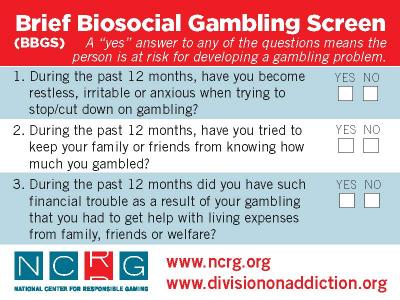Although adolescents are particularly prone to environmental influences as they come into young adult age, few studies have looked at the effect that genetics versus environment has on gambling behaviors. Serena King, PhD, a 2006 New Investigator grantee of the National Center for Responsible Gaming, built upon her prior work looking at personality, gender, and family history in the prediction of college gambling, with this 2017 longitudinal twin study.
What is the aim of this review?
The aim of this study by King et al. (2017) is to examine genetic and environmental influences on gambling behaviors contributing to stability and change from adolescents to young adults aged 18-25. It was hypothesized that genetic factors become increasingly important from 18-25, and that genetic and environmental effect on gambling behaviors would be the same for women and men.
What did the Researchers do?
Researchers used the longitudinal, population-based Minnesota twin study to look at the effect of both genetics and environment on gambling behaviors in 18-25-year olds. Twin pairs were ascertained by birth records from 1978-1982 and eligibility was determined by proximity to the study and absence of physical or intellectual disability. The sample contained MZ (identical) twins (male: 252, female:233) and DZ (non-identical) twins (male: 252, female: 147) with an acceptance rate of 84% and follow up rate around 90%. Participating twins completed a questionnaire at both ages 18 and 25, which was used the South Oaks Gambling Screen (Lesieur and Blume, 1987) and additional questions pertaining to the amount of money spent on gambling. The researchers were then able to calculate the correlations between the twin pairs relative to genetics, shared environment, and non-shared environment.
Why is this important?
Twin studies are important to research, because they allow researchers to better determine whether a certain disorder is influenced more by genetics or by the environment. Gambling is known to run in families (Black et al. 2014), but the extent of genetic influence is relatively unknown, especially in young adults who are particularly prone to environmental influences. Twin studies have been used to assess nature versus nurture in a wide variety of addictions, but is relatively nonexistent in gambling research. An insight published inNature Reviews Genetics, highlights that “Twin and family studies provide strong evidence that addictions involve the interplay of genetic and environmental factors… (this) is crucial for the development of more effective interventions” (Li and Burmesiter, 2009). This study offers a novel longitudinal study looking at adolescent gamblers and the shifts in influence becoming young adults, and affords an opportunity to influence future interventions.
What did they find?
Researchers concluded that genetic factors increase in influence from 18-25, from 21% at age 18 to 57% at age 25 and this was consistent with both males and females. They also found that shared environmental influences between twin pairs are influential at age 18, but decreases from 18-25, 55% at age 18 and 10% at age 25. Finally, they concluded that the presence of disordered gambling is almost entirely genetic, while non-problem gambling is influenced almost entirely by shared and non-shared environmental influences.
Limitations
The study population was 98% Caucasian, which negatively affect generalizability to other populations. Additionally, this only looked at two time-points over a 7-year range and, therefore, any changes that occurred in between these two set points would likely be missed.
References
King, S. M., Keyes, M., Winters, K. C., Mcgue, M., & Iacono, W. G. (2017). Genetic and environmental origins of gambling behaviors from ages 18 to 25: A longitudinal twin family study.Psychology of Addictive Behaviors,31(3), 367-374. doi:10.1037/adb0000266
Li, M. D., & Burmeister, M. (2009). New insights into the genetics of addiction.Nature Reviews. Genetics,10(4), 225–231. http://doi.org/10.1038/nrg2536
Susser, E., Schwartz, S., Morabia, A., & Bromet, E. J. (2006). Twin Studies of Heritability.Psychiatric Epidemiology,375-388. doi:10.1093/acprof:oso/9780195101812.003.31
Lesieur, H. R., & Blume, S. B. (1987). The South Oaks Gambling Screen (SOGS): A new instrument for the identification of pathological gamblers.American Journal of Psychiatry,144(9), 1184–8
Black, D. W., Coryell, W. H., Crowe, R. R., McCormick, B., Shaw, M. C., & Allen, J. (2014). A Direct, Controlled, Blind Family Study of DSM-IV Pathological Gambling.The Journal of Clinical Psychiatry,75(3), 215–221. http://doi.org/10.4088/JCP.13m08566
NCRG staffIssues & Insightscollege gamblingdisordered gamblinggeneticsresearch



